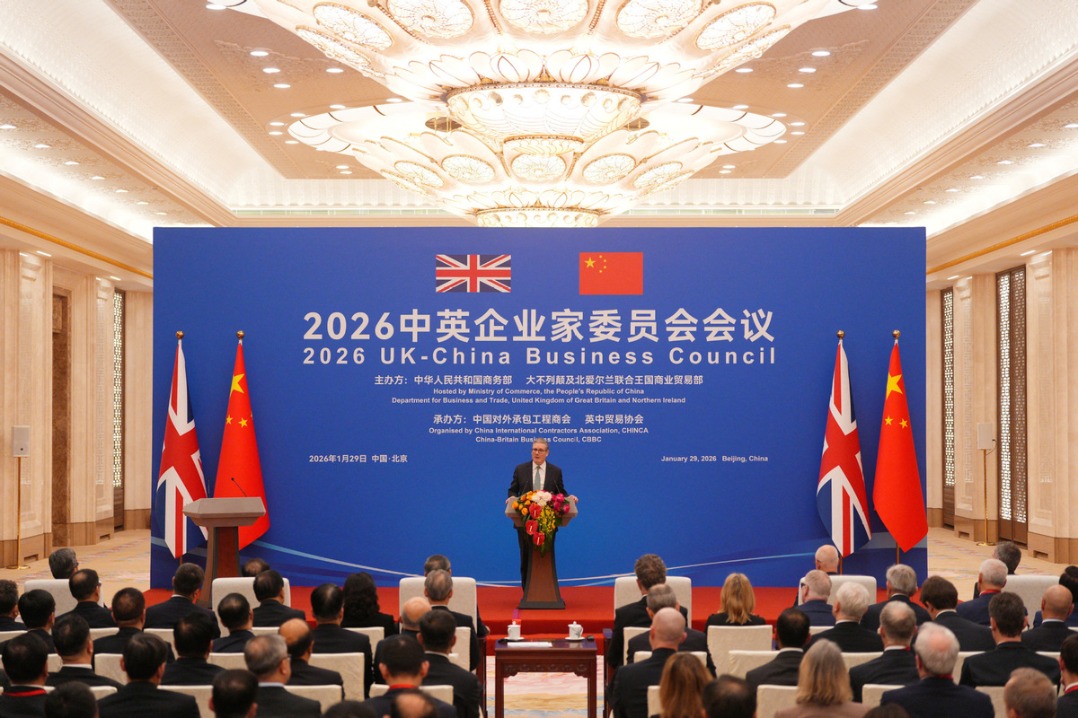Chinese film director offers an open canvas to better understanding

Asked about how audiences from across the world may view her work, Chinese film director Jiang Xiaoxuan says it is "an open canvas, where you can connect from any perspective or point on the map".
Her debut feature, To Kill A Mongolian Horse, is screening at the Sydney Film Festival this month.
The film, inspired by true events, follows a horseback performer living on the grasslands of North China's Inner Mongolia autonomous region. Festival organizers describe it as a "visually stunning elegy to those trapped in a confusing modern world".
This year's festival will present about 200 films from 70 countries and regions, including international and Australian premieres.
At the 81st Venice International Film Festival last year, Jiang's exploration of "masculinity and culture in crisis" won her an Authors Under 40 Award for best directing and screenwriting.
Speaking to China Daily in Beijing, Jiang said she does not have any particular expectations about how Australian audiences might respond to the film's exploration of tradition, modernity and human relationships.
"I believe filmmakers are there to pose questions to the audience, not to provide the answers. We shouldn't try too hard to anticipate what viewers want or assume we know what a particular film might teach them," said Jiang, who studied film at New York University's Tisch School of the Arts.
"I only have a limited understanding of Australia's culture, society and how young Australians think today. How audiences will feel after watching the film — whether they'll resonate deeply or perceive it as entirely foreign, reflecting another country, another people, another language — is something quite difficult for me to predict," said Jiang, who was in Australia's Queensland state late last year when her movie was nominated for best film and director at the 17th Asia Pacific Screen Awards.
"This movie has been screened in places with similar expansive grasslands and pastoral settings. Some experiences resonate across cultures, but others are harder to anticipate. It's difficult to guess precisely how audiences will respond — whether they'll see parallels in family relationships or similarities in the way tourism affects local communities," she said.
"Audiences nowadays are very smart; they don't necessarily watch films just to learn something new. My goal is to offer them glimpses into different ways of life, prompting insightful conversations and thoughts."
Jiang said her own takeaway from the movie is clearer.
"For me personally, the experience was incredibly enriching. Filming in my hometown made it deeply intimate," she said.
"The lead role was played by a friend of mine, not a professional actor. I didn't strictly re-create real-life events; rather, I built and reflected on them. This process allowed me to take a step back to evaluate our realities through fiction."
Furthermore, Jiang acknowledged that her film may contribute to greater understanding of China by offering Australian audiences a taste of the country's geographical and cultural diversity, potentially challenging existing stereotypes.
"I think clearer distinctions will foster better understanding. While I don't know precisely how this plays out in Australia, my experience studying abroad in the US has shown me that within larger Western contexts, 'Asian' often just means East Asian," Jiang said.
"If we fail to differentiate, people and cultures become vague and featureless. Highlighting these distinctions can effectively break down stereotypes and open more possibilities for genuine understanding," she said, adding that common misconceptions about Inner Mongolia include everyone being ethnic Mongolian, physically robust and riding horses to school.
Her next work, however different, looks set to continue breaking down those barriers.
"My upcoming film will likely be related in some way to this film, but even if I shoot in the same location or with the same actors, the story and perspectives will be entirely different," Jiang said.
Contact the writers at xinxin@chinadaily.com.cn































